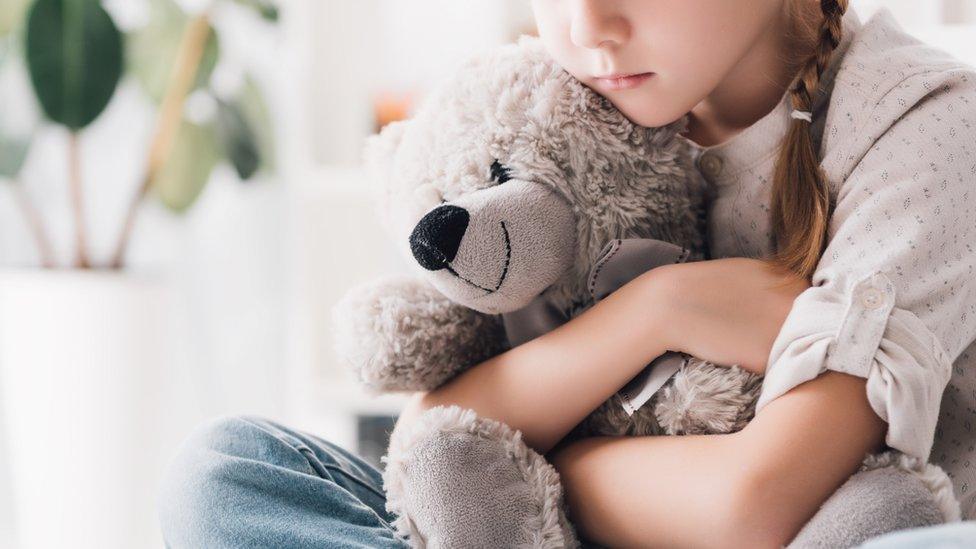Coronavirus: What to do if someone you love has died
- Published
Doctor Radha talks to Leah about the ways you can cope when someone has died.
If this video doesn't play, please click here
You might have heard about, or know of someone, who has become ill and died recently.
It may have something to do with the way we are living right now due to the coronavirus outbreak.
When someone you love dies, it's sad and very upsetting.
There's not an easy way to deal with that loss, but there are different things you can do which might help you to cope.
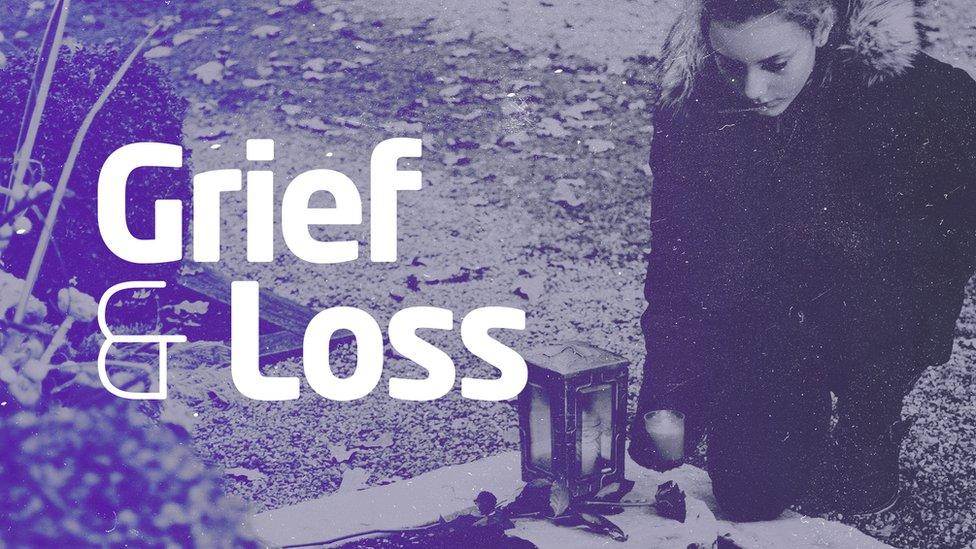
What is grief?
The feeling you have when somebody has died is called grief. It can involve lots of strong emotions and is different for every single person.
Grief can be painful, but it's not something to be scared of and it's important to cope with your feelings in your own way and at your own pace.
There's no right or wrong way you should feel after the death of someone you care about.
You can have lots of different emotions, such as feeling sad, confused, worried, angry, lonely or numb. This is normal and it's called grief."
Doctor Radha often gives advice on BBC Radio One. She says that because of coronavirus, coping with grief could be more difficult during the government's lockdown.
"The most important thing to say is, with challenge comes a lot of kindness, a lot of support, there are lots of adults who are there for you. You're not on your own and you are loved and there are lots of people who can help you right now if you're finding it really difficult."
During a conversation with Doctor Radha, Newsround presenter Leah explained that her mum died three years ago.
She says "creating picture books, memories and just being outside with nature" helped with her feelings.
How to cope when someone you love has died.
What it is like to lose someone you love
If this video doesn't play, please click here
Winston's Wish is a charity that gives families and children advice when someone has died.
They say that even though death can feel frightening, it is a normal part of life: "Grief can feel so hard because of the love you had for the person who has died. It can be helpful to remember that everything that lives also has to die one day. Flowers, animals, trees, butterflies, people all die eventually, however, most people don't die until they are very old. "
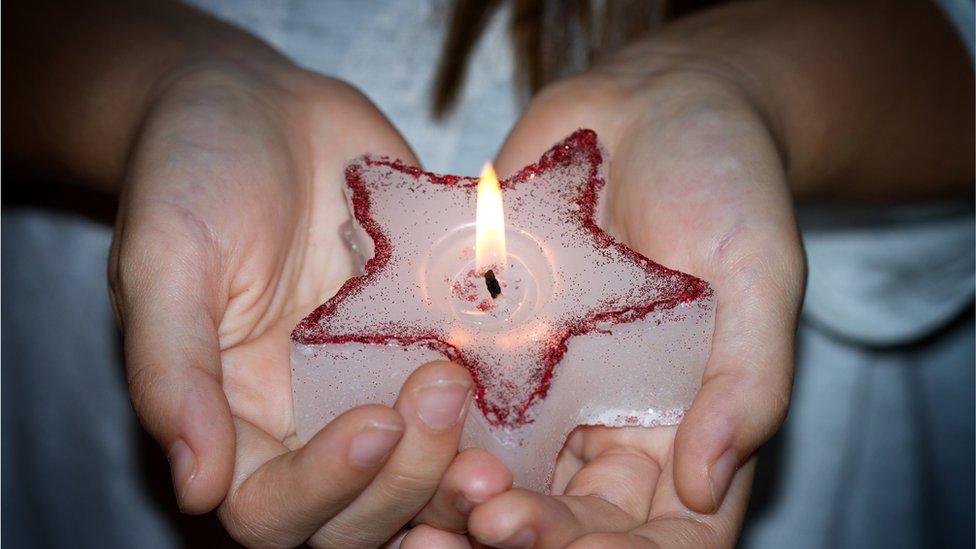
Coronavirus - Why are lots of people getting so ill?
Coronavirus is a flu-like virus spreading around the world. For most people who catch the virus, including children, it's unlikely that they will get very ill, lots of people who catch it are only sick for a few days.
For people who become very poorly, doctors, nurses and the NHS are working really hard to help them get better.
But sadly, not everyone can get better and many people have died with the disease.
This is a confusing time for everyone, grown-ups might not know the answers straight away but asking questions to try to make sense of things is good.
Talking can help
Child Bereavement UK is an organisation that helps lots of children and teenagers after someone they know has died. They say talking can make you feel 'less confused, upset and alone'.
Grief will mean you have to cope with a lot of strong emotions. Try to talk to an adult you trust if you don't understand how you're feeling.
The adults in your life might be sad too and it's not easy seeing parents and family upset, but talking with them can make you all feel better..
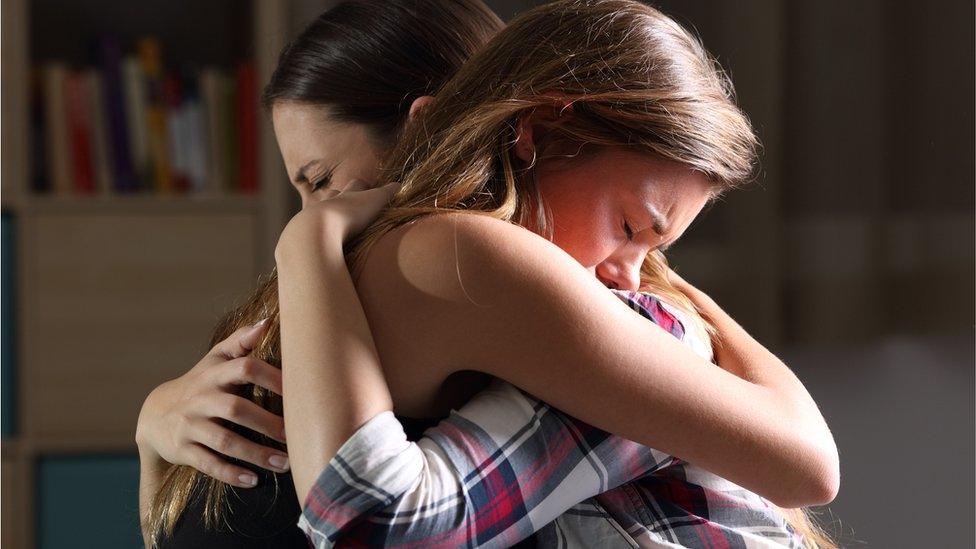
Due to coronavirus, it's harder to talk face-to-face with friends or family that you don't live with, so arranging phone or video calls might also be a good idea.
It's ok to cry with the people you're close to about the person who has died, and it's ok to have quiet moments by yourself.
It's also fine to laugh and share happy memories about the person.
There is no right or wrong way to deal with this, take your time, talk to people if you need to and have time on your own if you need to.
Coronavirus: Advice if you're worried about death
It is important to look after yourself and your mental health.
Doing things you enjoy can help you deal with anxiety and stress.
This can be things like listening to music, gaming, going for a walk or other exercise.
This is a confusing time for everyone, grown-ups might not know the answers straight away but asking questions to try to make sense of things is good.
It's ok to have fun sometimes, this doesn't mean you don't care about the person who has died.
Clare Bullen, who works for Child Bereavement UK, says that looking after yourself is really important.
"Life can feel very different and a bit out of control, doing things you would normally do can help you feel better and cope with your feelings. Get plenty of sleep, eat healthily and try to do something that makes you feel good every day.
It's ok to have fun sometimes, this doesn't mean you don't care about the person who has died.
"Laughing, smiling or doing something you enjoy is good and will help you cope better."
What you can do when someone you love dies. Advice from Child Bereavement UK
If this video doesn't play, please click here
Enjoying nature
Going out, either in your garden if you have one, or on a daily walk, and enjoying nature can be really good for mindfulness.
It is normal to feel really sad, but it's also important to give your mind a rest from all those strong feelings and emotions.
Doctor Radha says: "Nature, wildlife our pets, our animals are going to be really really supportive. Almost a therapy in itself right now if you have lost someone that you love.
"Nature gives us a sense of grounding, we can feel safe and comforted in nature because we can see lots of things going on.
"The other thing about nature is; it takes your mind away, when you hear the birds singing, you're looking at the trees, looking at the flowers or the bees it can help your mind just focus away from how you're feeling and give your mind a bit of a break."
This situation brings up extra challenges, perhaps not being able to attend [a] funeral. So it's even more important to ask an adult you trust for support.
Keeping memories
Clare from Child Bereavement UK says keeping hold of memories and looking back on happy times you had with a person who has died helps too.
"Some young people say it helps them to make something, to remember the person who died. Some ideas include writing about the person, drawing a picture, or creating a memory box that is full of things that remind you of your special person."
The outbreak of the virus has meant lots of things are having to change. One of the things that has changed is how funerals happen, meaning not all family members will be able to come together to share their memories.
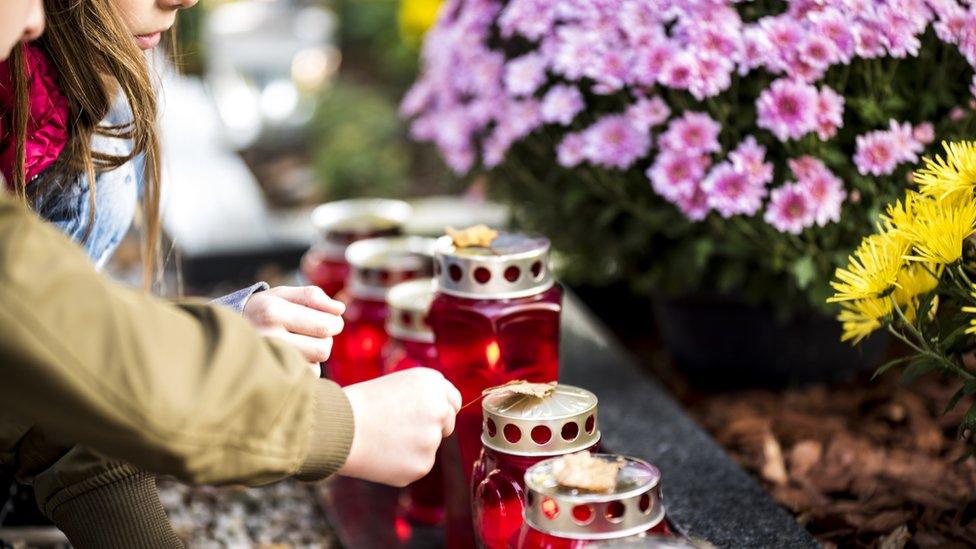
Helen Fisher, from Winston's Wish, says technology can help when seeing family at a funeral isn't possible: "It will provide a visible connection, families can come together to share a few quiet moments, talk about the person and maybe listen to some music that they all enjoyed together."
Child Bereavement UK help line: 0800 02 888 40. Their website also has a live chat for help and support.
The charity Winston's Wish has support on its website and a 24/7 text message service to help. Text WW to 85258.
If you are worried and feeling anxious you can also call Childline on 0800 1111
www.childline.org.uk, external
- Published15 February 2019
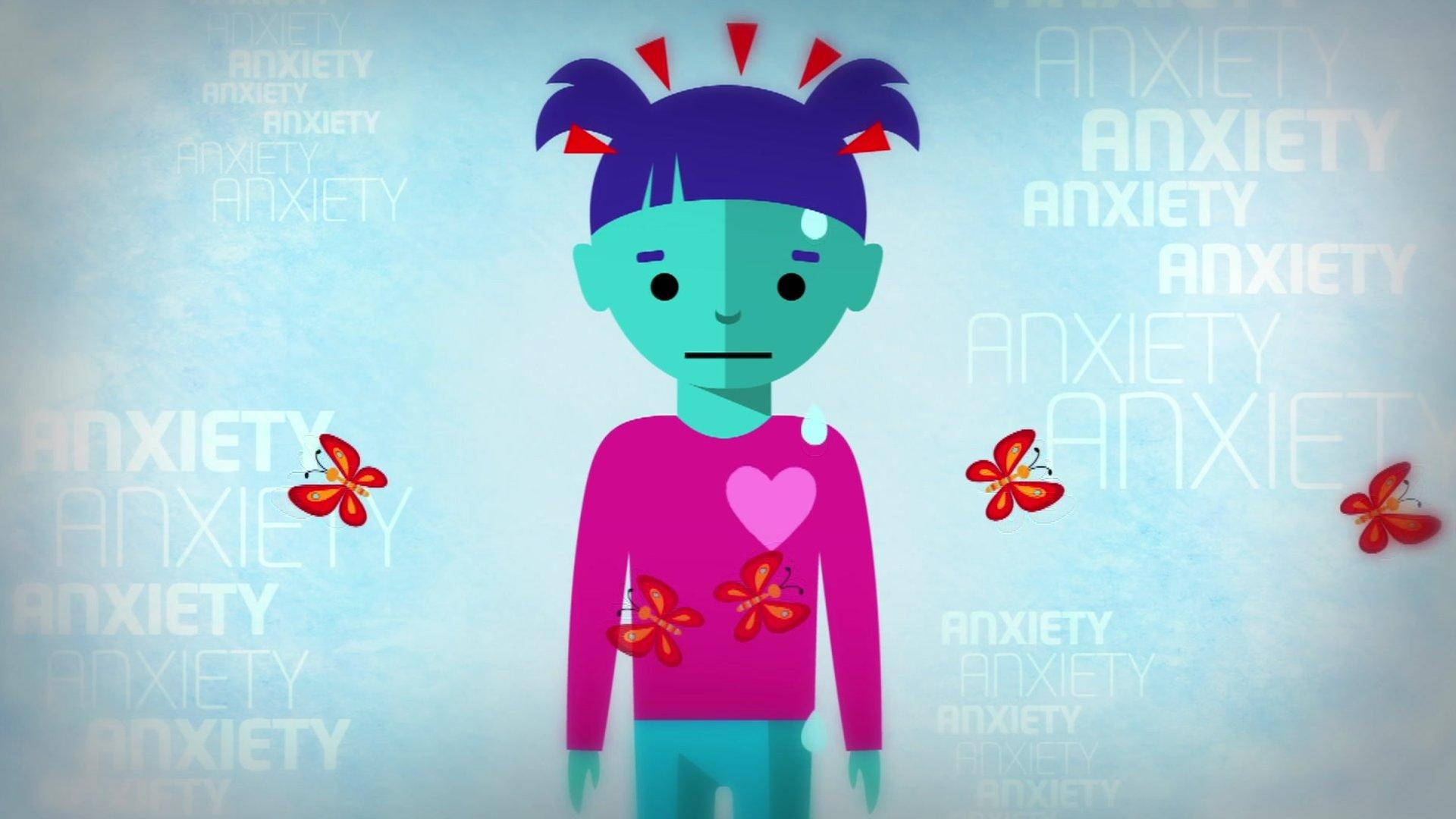
- Published29 August 2022
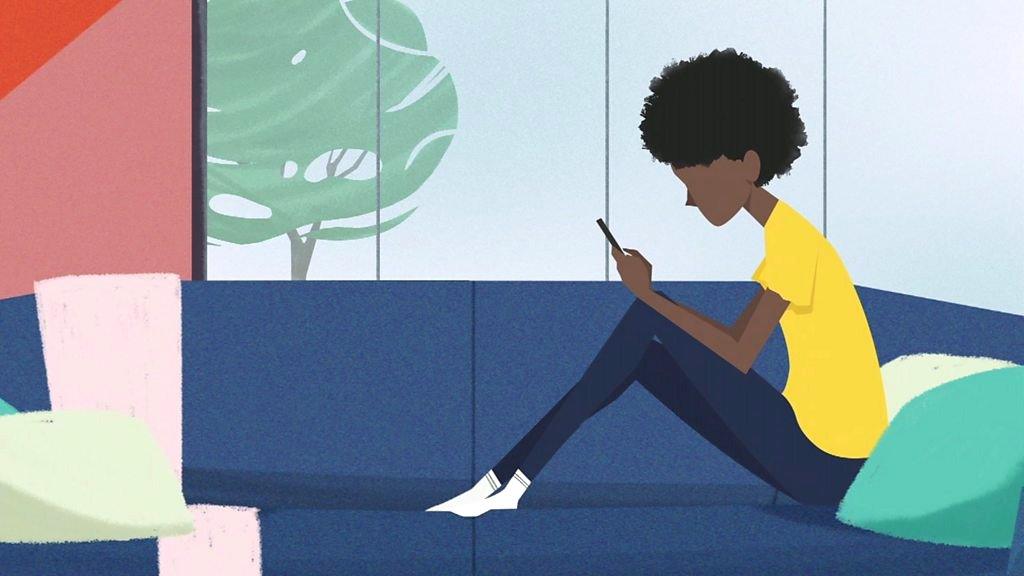
- Published21 November 2019
